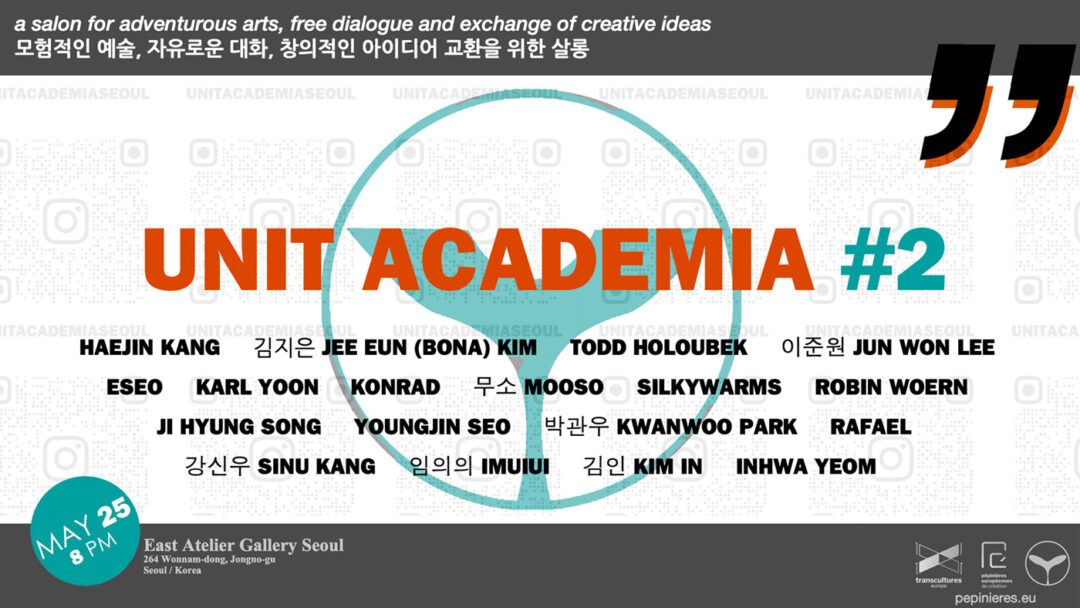
Transcultures Europe and the European Pepinieres of Creation are pleased to present the 2nd UNIT ACADEMIA event, a new series of multidisciplinary presentations initiated in Seoul -in March 2024- by Rafael (a Belgian visual and multimedia artist, also organizer of the ALEA and De Noize experimental arts festivals) together with organizer Karl Yoon.
Read the interview with multimedia artist and cultural event organizer Rafael conducted during his residency at Transcultures Belgium (below).
Unit Academia wishes to welcome regularly welcome artists from various disciplines (sonic, visual, digital, interdisciplinary, etc.), as well as artistic commissioners, to present their projects and approaches to the public in a friendly atmosphere conducive to dialogue and interaction at the East Atelier Gallery, each month.
UNIT ACADEMIA is a new project bringing together artists, researchers, artistic commissioners, and thinkers.
UNIT ACADEMIA aims to become the monthly rendezvous for encounters and exchanges between active actors of the Korean and international artistic scene.
UNIT ACADEMIA is an event comprising conferences, performances, screenings, music, installations, and much more.
Program
박관우 INHWA YEOM (screening)
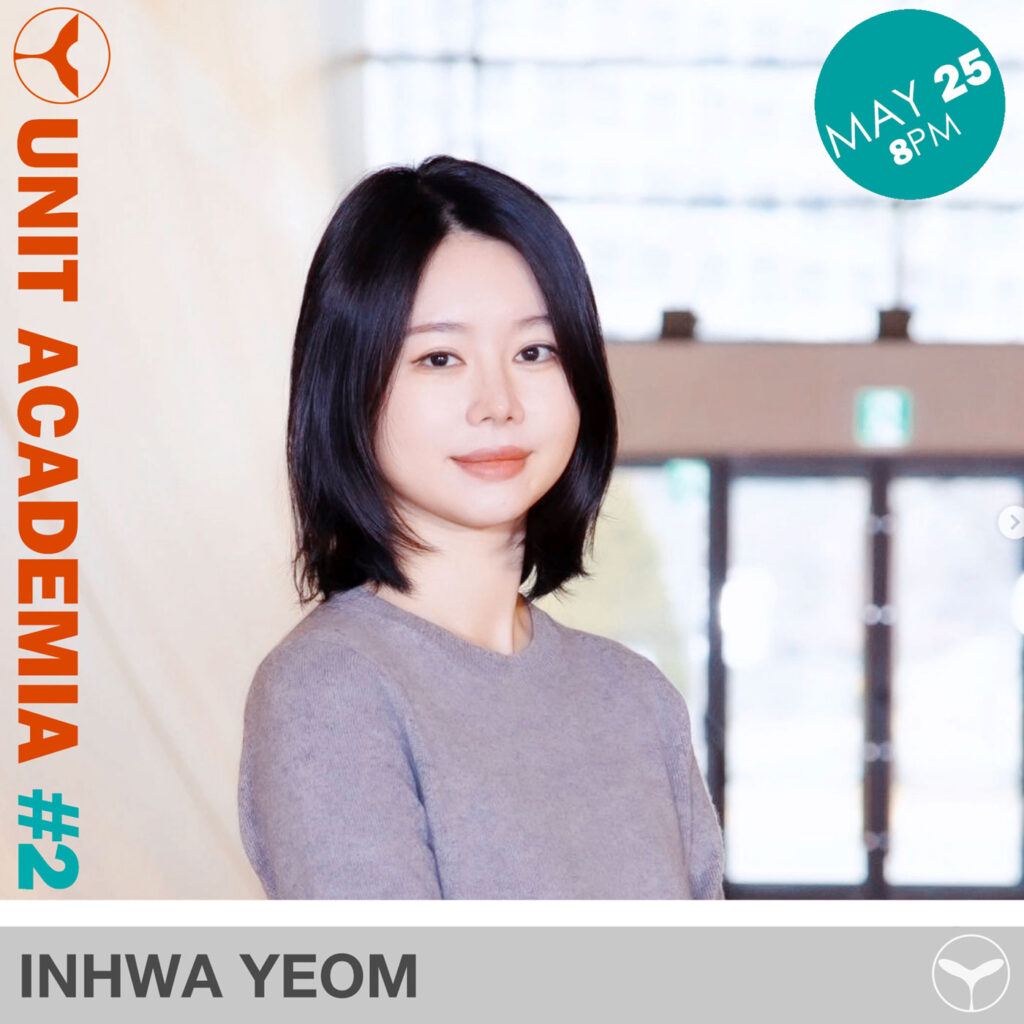 Inhwa Yeom (she/her) is an XR researcher. She designs, develops, and evaluates XR-based interactive systems that aim to enhance the accessibility in 1) medical and rehabilitative, and therapeutic experiences and 2) collaborative expression and self-directed learning.
Inhwa Yeom (she/her) is an XR researcher. She designs, develops, and evaluates XR-based interactive systems that aim to enhance the accessibility in 1) medical and rehabilitative, and therapeutic experiences and 2) collaborative expression and self-directed learning.
As such, her systems prioritize people with less familiarity or accessibility to 3D interfaces and interactions. Her proposed systems have been presented and/or published in Nature Medicine Conference, Nature Scientific Reports, IEEE VR, HCI Korea, and other clinical & CS journals.
Other works are materialized as lectures and workshops, open source contribution.
TODD HOULOUBEK (screening)
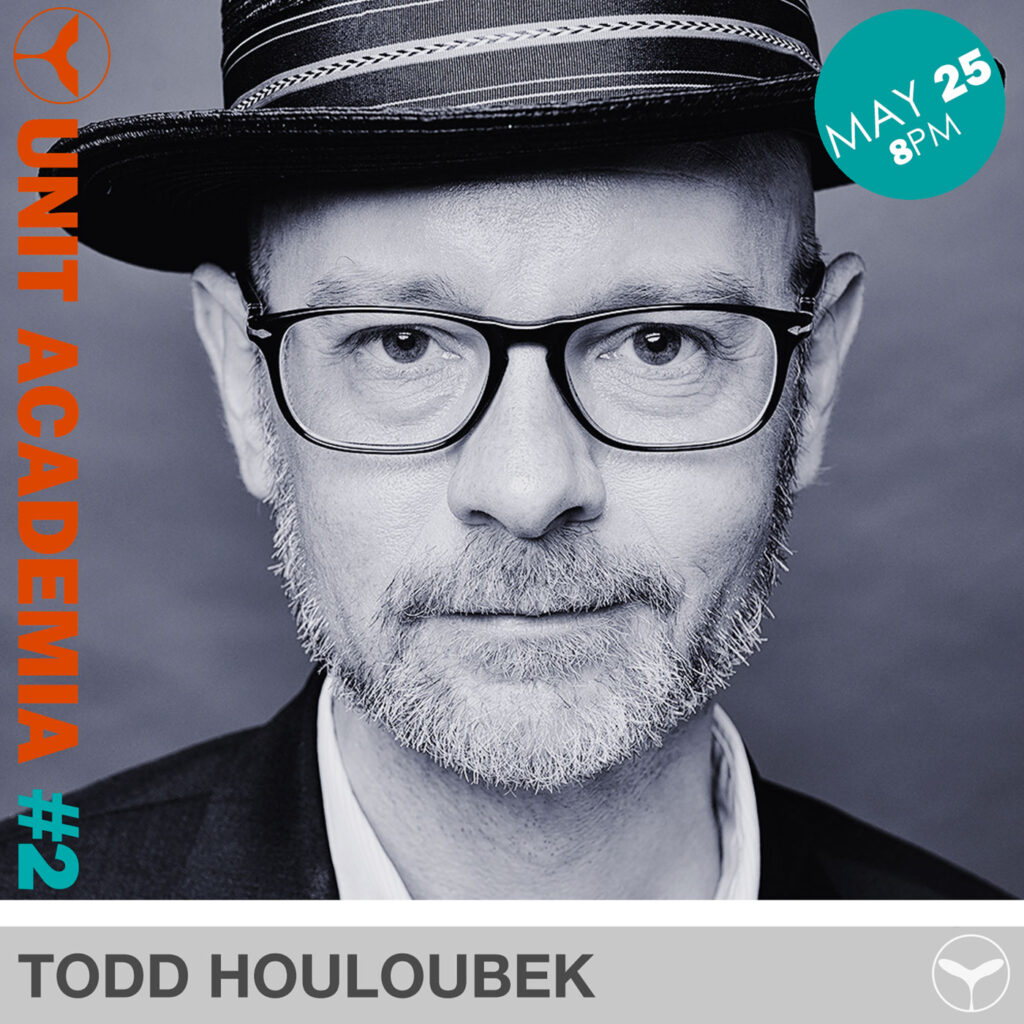 Todd Holoubek, is a contemporary technology artist based in Seoul South Korea.
Todd Holoubek, is a contemporary technology artist based in Seoul South Korea.
His works and art practice, reflect his history with the tools of technology and the media. Holoubek’s works have been presented in locations such as Cuba, New
York, Los Angeles, Canada, and South Korea.
His perceptually engaging works draw on his experiences working in television as an actor, writer, and creator of the
1990’s MTV series “The State on MTV”; resident researcher and adjunct professor at the Interactive Telecommunications Program(ITP), NYU.
Currently he is a full time media art professor at Yonsei University, in the Graduate School of Communication.
SILKYWARMS (performance)
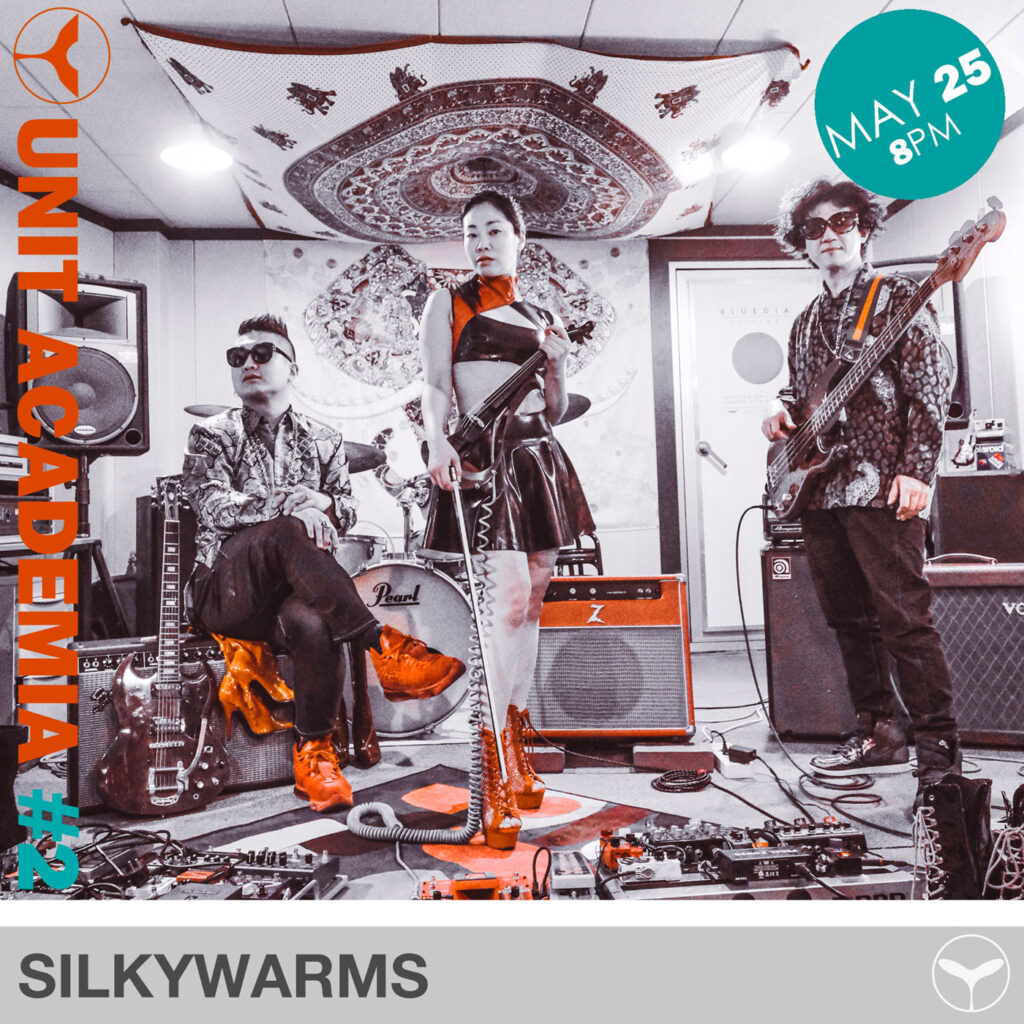 “We are band ” SilkywarmS ” !Psychedelic / Progressive / Spacey / Sexy & Soul Improvisation Rock band from Korea.
“We are band ” SilkywarmS ” !Psychedelic / Progressive / Spacey / Sexy & Soul Improvisation Rock band from Korea.
We’re running for the world stage, have dozens of fantastic original song numbers produced by the band, and are always ready to present and play the best ensemble ever.
It’s like a space trip! We’re all Earthlings and astronauts!”
HAEJIN KANG (Talk)
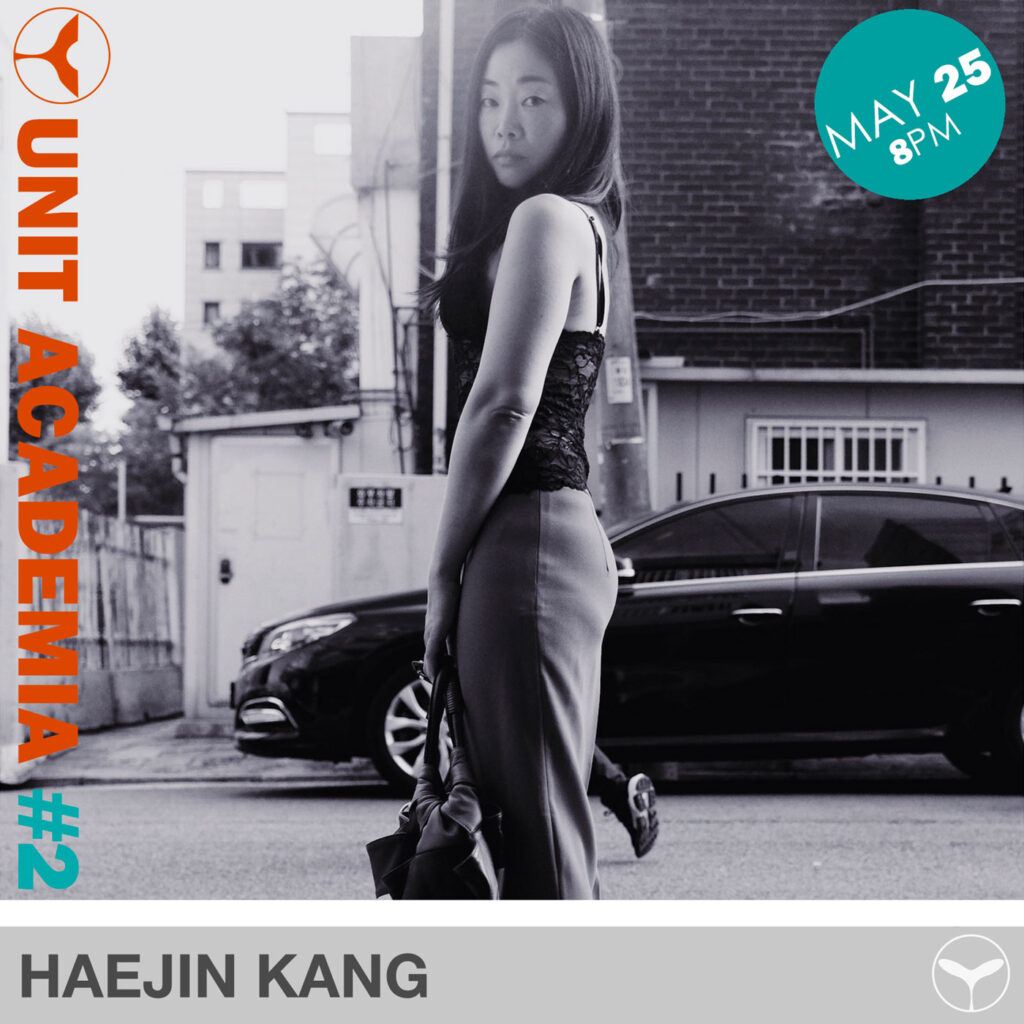 is the CEO of ‘Dancing Butterfly Records’. In 2015, she released the album <A Live>, which included improvisations with Kim Ki-cheol and Lee Young-kyung, and in 2017-2018, she began producing LPs of one-take recordings of improvisers. She attracted attention by planning the <“I AM” project exhibition>.
is the CEO of ‘Dancing Butterfly Records’. In 2015, she released the album <A Live>, which included improvisations with Kim Ki-cheol and Lee Young-kyung, and in 2017-2018, she began producing LPs of one-take recordings of improvisers. She attracted attention by planning the <“I AM” project exhibition>.
She continues to record her improvised music, releasing <Circle.Point> in 2019, a live album in which she performed with Kang Tae-hwan and Yoo Jin-gyu. In 2023, she released the <dark fairy tale> solo album, performed solo, and appeared on numerous broadcasts. As a new attempt, she created the band SilkywarmS, which plays psychedelic music with violin sounds. She is an artist who works as a performer, planner, and music director, exploring and trying new sounds with musicians of various genres, including rock, experimental music, electronic music, and Korean traditional music.
Not only that, she also appeared in movies and achieved good results. Her first feature film, Yoseon, won the top prize at the Jecheon International Music and Film Festival and was invited to the Moscow Film Festival.
무소 MOOSO (Performance)
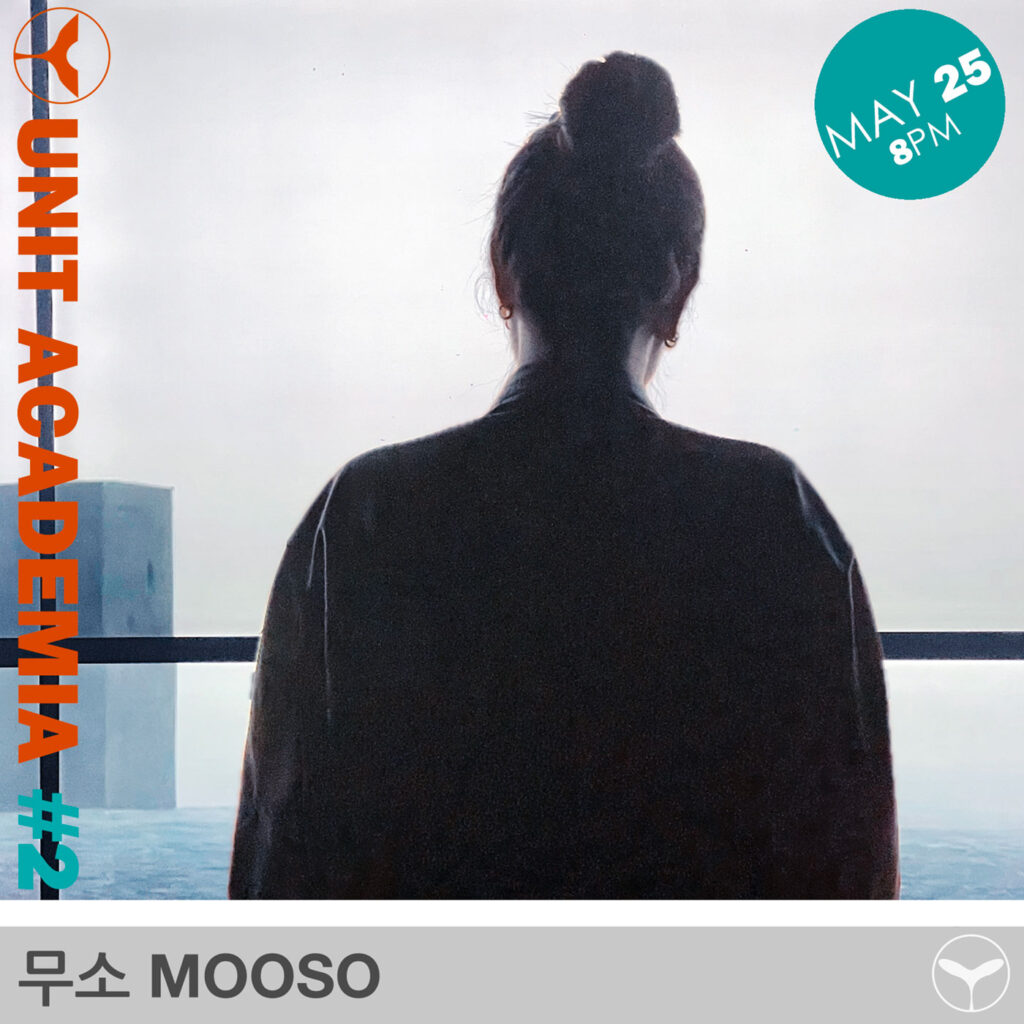 Mooso is a creator and planner, and also a co-director at art space BCL.
Mooso is a creator and planner, and also a co-director at art space BCL.
Through texts, sounds, and voices, the work involves exploring the processes of listening, speaking, and seeing.
She experiments with the complete failure of linguistic meaning transmission, dreaming of intimate empathy that emerges from these moments.
박관우 KWANWOO PARK (screening)
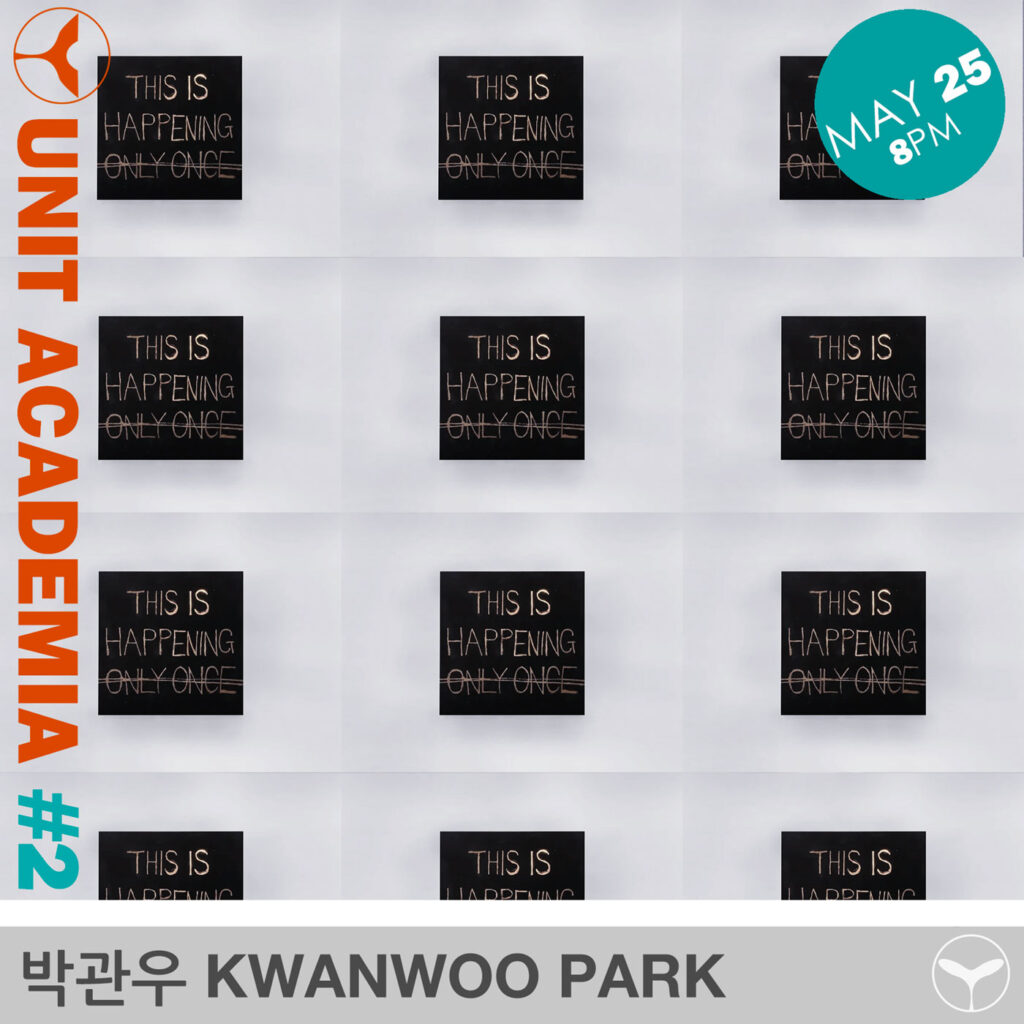
After studying user experience and physical interaction at Hongik University, where he majored in digital media design, he went on to study sculpture at the Royal College of Art, expanding his background in the domain of contemporary art. He was selected as a resident artist for Hyundai Motor Group’s Zero One,
Goyang Residency of the National Museum of Modern and Contemporary Art, and H-Art Lab of Hoban Cultural Foundation.
His works have been repeatedly selected for numerous competitions by the Hyundai Motor Group, Arts Council Korea, Seoul Cultural Foundation, Platform L Contemporary Art Center, and others…
JEE EUN (BONA) KIM (talk)
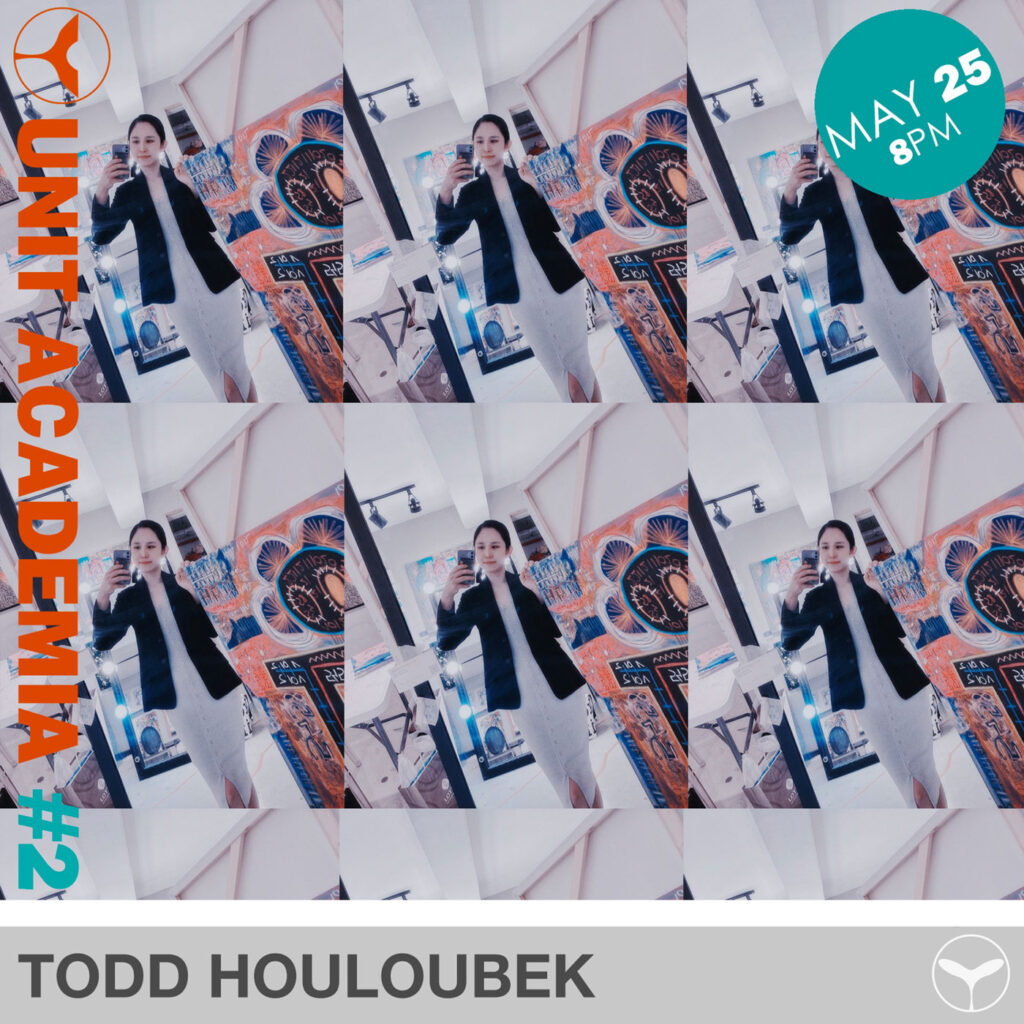
Jee Eun Kim owns the EAST ATELIER, a gallery located in the center of Seoul. She wants to focus mainly on young emerging artists that she wants to help develop.
KARL YOON (talk)
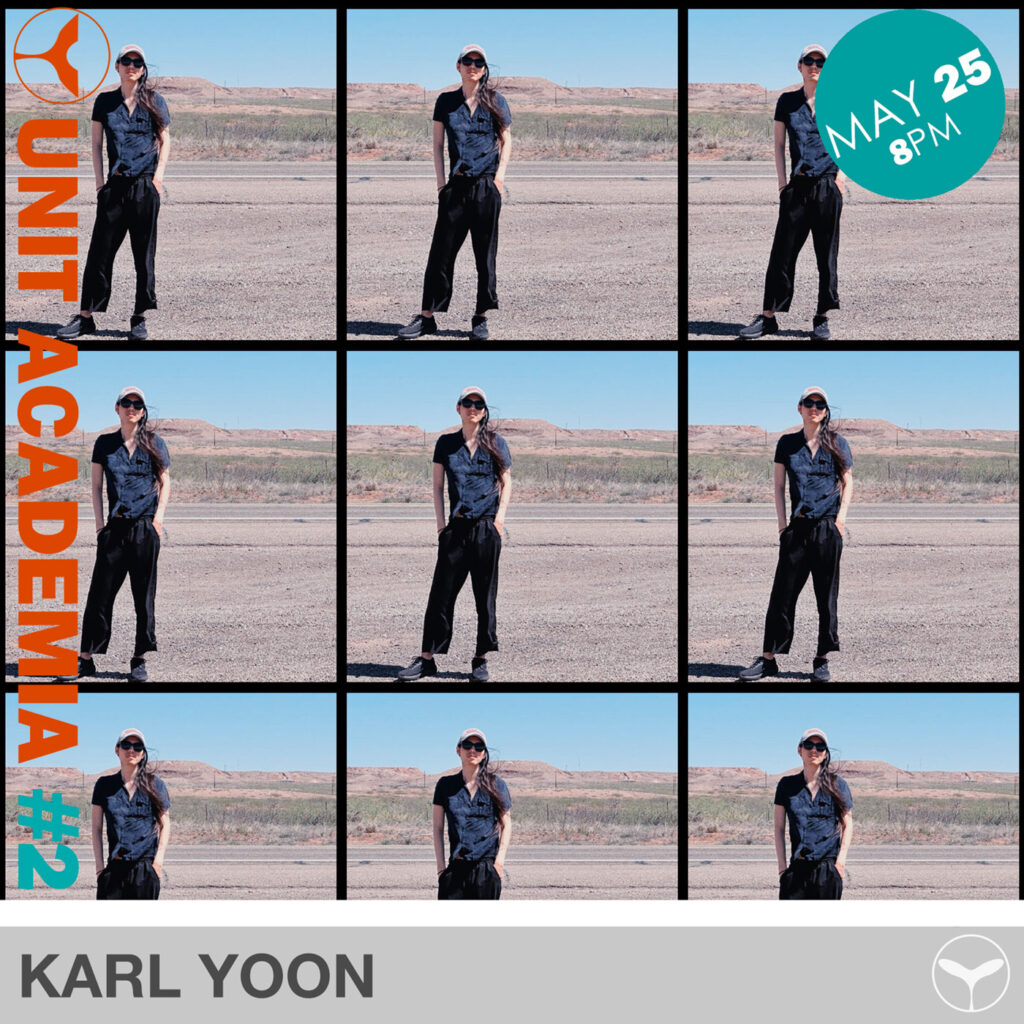 Founder of Zero Zero Division. Work regardless of genre, including event planning/ fashion design/ performance
Founder of Zero Zero Division. Work regardless of genre, including event planning/ fashion design/ performance
With Rafael Leafar, he is, among others, the co-organizer of UNIT ACADEMIA.
RAFAEL (screening)
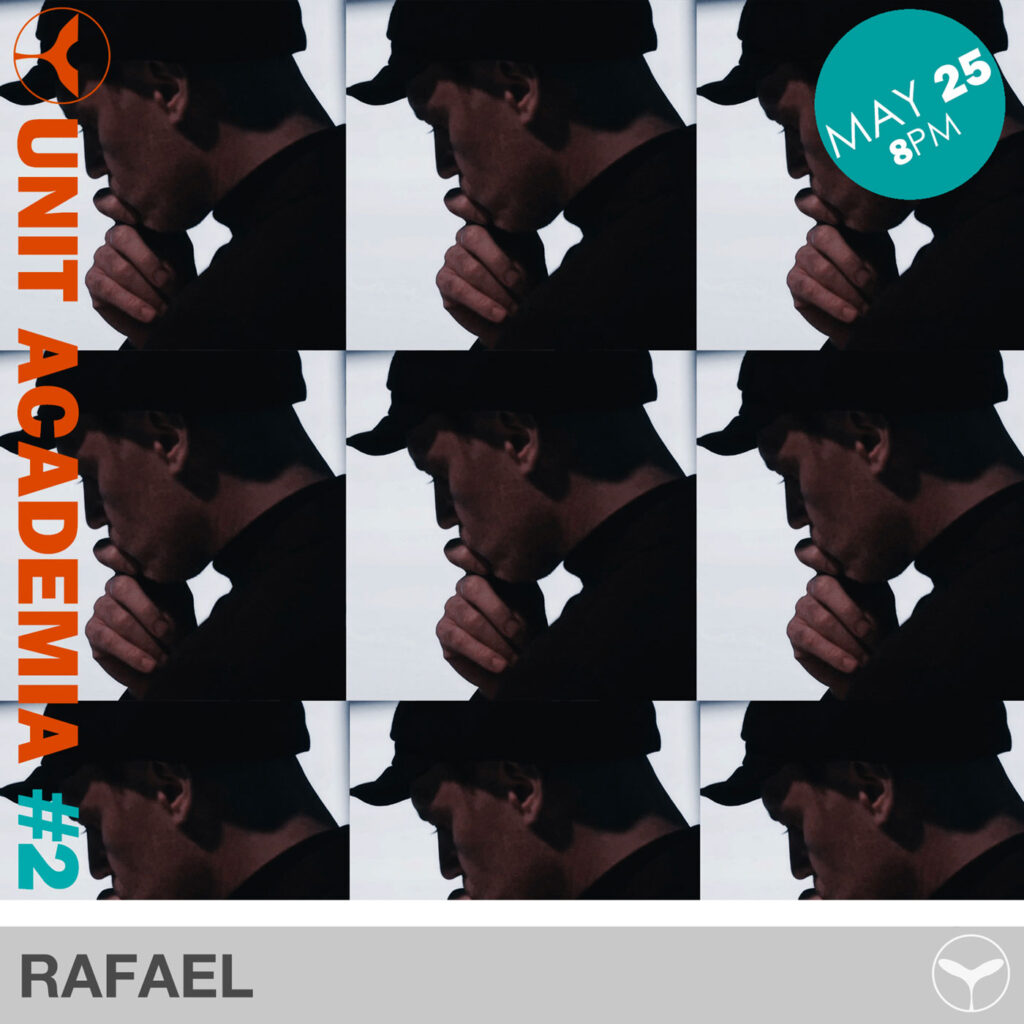 “Rafael showed his work in festivals, museums and cultural institutions throughout europe, america and asia, such as, among others : the tate britain in london, the international short film festival oberhausen in germany, the international film festival of rotterdam (iffr) in the netherlands, transmediale in berlin,, the institute of contemporary arts (ica) in london, the singapore art week, the national museum of contemporary art of korea (mmca) in seoul, etc…
“Rafael showed his work in festivals, museums and cultural institutions throughout europe, america and asia, such as, among others : the tate britain in london, the international short film festival oberhausen in germany, the international film festival of rotterdam (iffr) in the netherlands, transmediale in berlin,, the institute of contemporary arts (ica) in london, the singapore art week, the national museum of contemporary art of korea (mmca) in seoul, etc…
his work can best be described as live cinema– a confluence of video, conceptual art and experimental music, composed and interpreted before live audiences…”
Transfert 갈아타다 / Centre culturel coréen du Royaume-Uni à Londres
Read his interview below
강신우 SINU KANG (Performance)
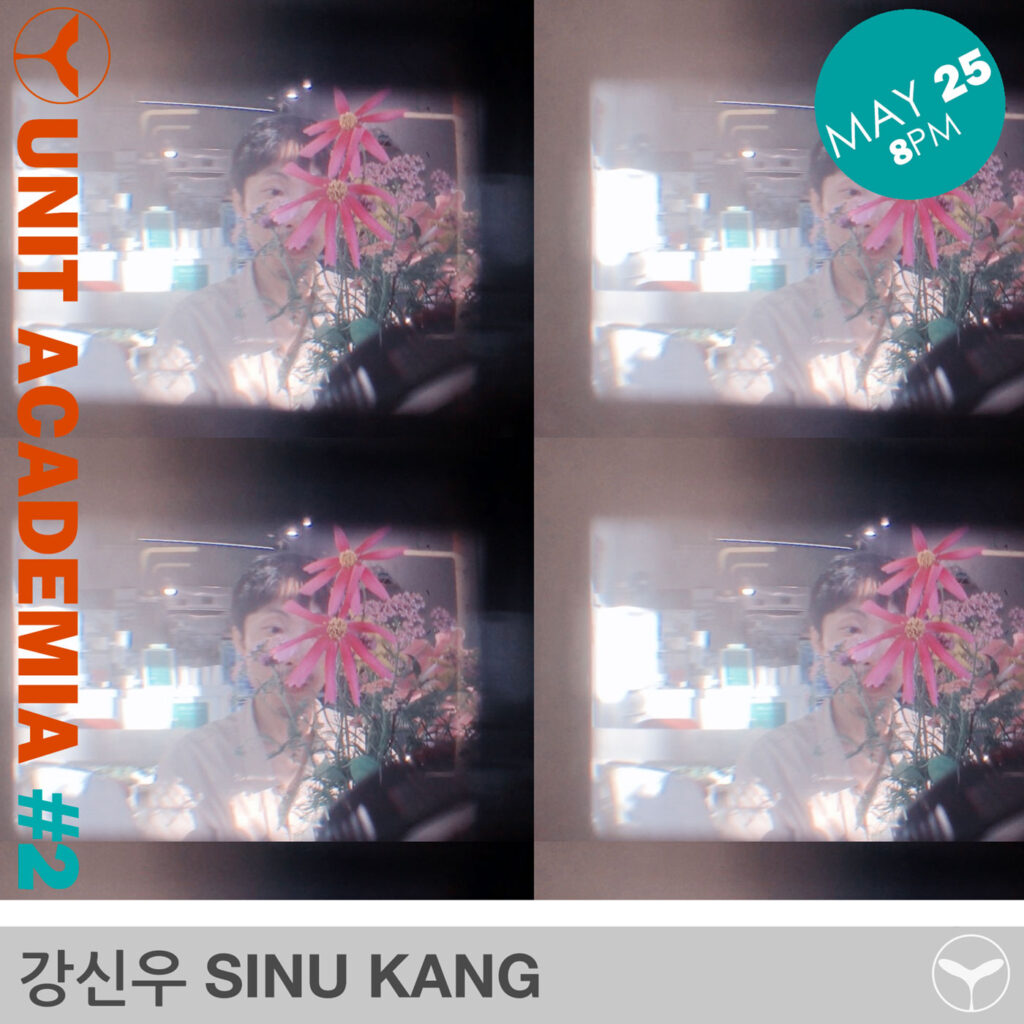 Rather than aiming to find a genre or style, I simply followed what came to me at that moment, believing that my sadness would create a style for me.
Rather than aiming to find a genre or style, I simply followed what came to me at that moment, believing that my sadness would create a style for me.
Meanwhile, I also worked in teams that worked based on spoken words, such as Electronic Poetry Theater Company and Jujuk. Moving my body has always been with me, and the sampler has become a familiar instrument. Also, I think I learned the methodology of DJing without even knowing it.
I look at the soul’s creaking, off-beats, mischief, sense, nonsense, play, laughter, resignation, etc.
CONRAD (Talk)
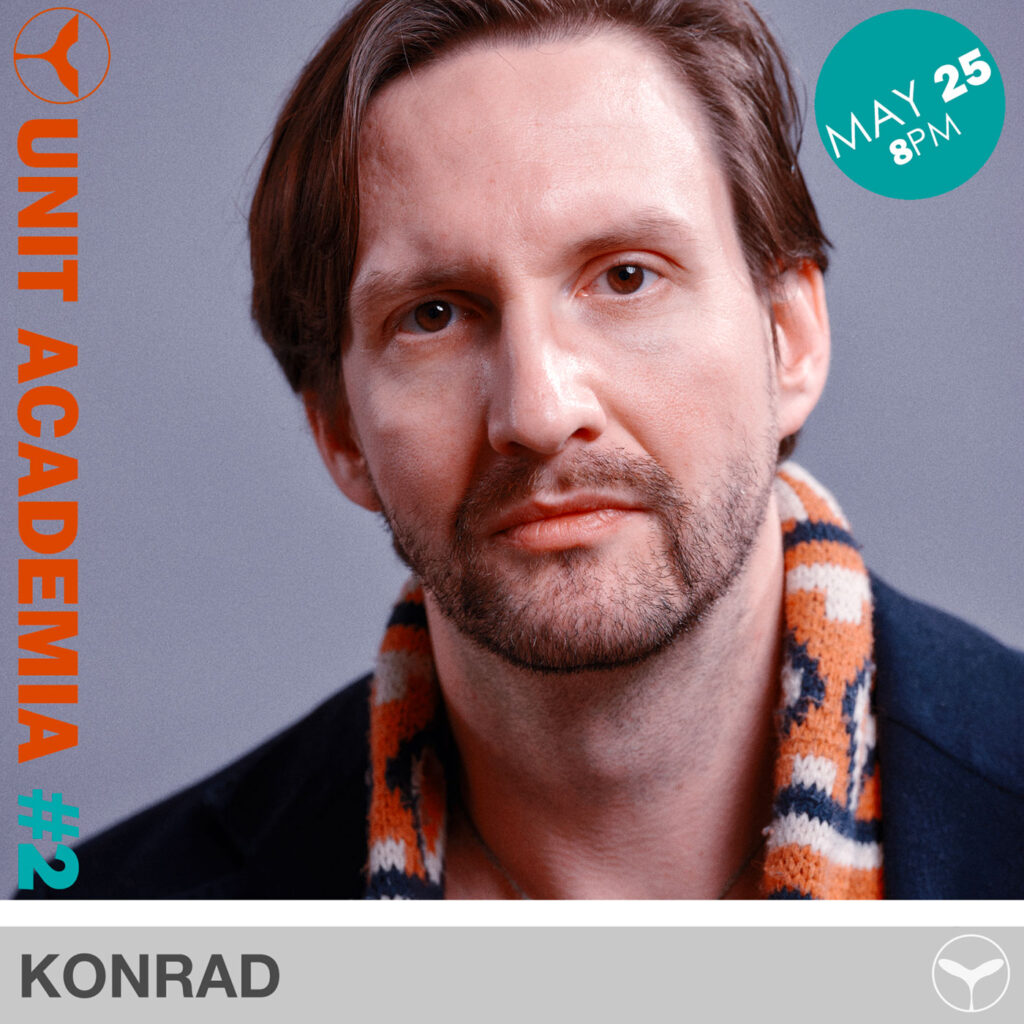 Konrad Becker Konrad Becker is co-founder of recycling/eco-design startup Would You Love (우쥬러브). Originally from Germany, he came to Korea in 2006 and was part of the first cohort of international students graduating from Yonsei University’s Underwood International College (Comparative Literature and Culture/International Studies).
Konrad Becker Konrad Becker is co-founder of recycling/eco-design startup Would You Love (우쥬러브). Originally from Germany, he came to Korea in 2006 and was part of the first cohort of international students graduating from Yonsei University’s Underwood International College (Comparative Literature and Culture/International Studies).
He holds master degrees in International Relations (Peking University) and Environmental Policy (Sciences Po Paris).
Prior to co-founding Would You Love in 2021 Konrad worked at Korean tech companies like Hanwha Q Cells and Crosscert.
As WYL’s director of strategy and business development he is committed to the creation of a circular economy infrastructure, development of sustainable materials and promotion of urban agriculture.
Besides his role at Would You Love, he works as a DJ and music curator.
Interview
Interview with Rafael (Be), visual artist and co-founder of Unit Academi
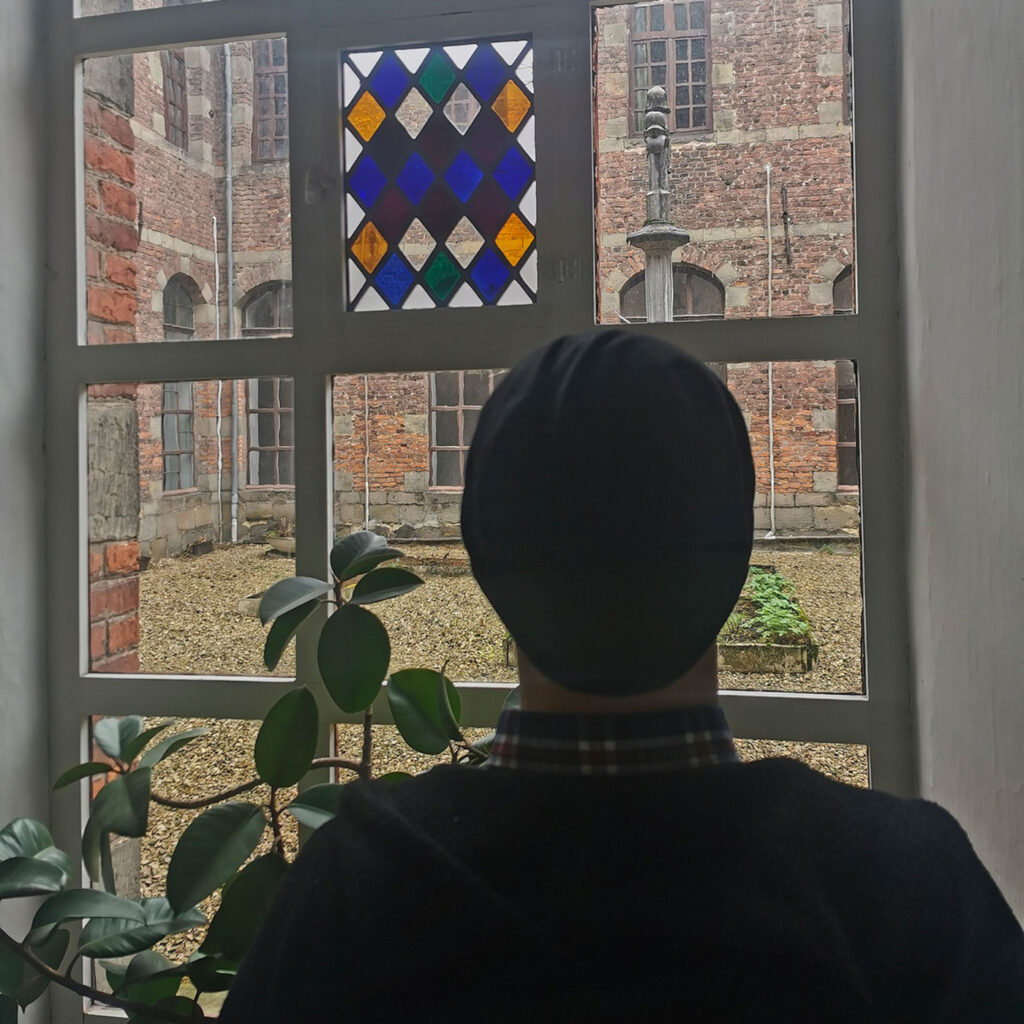 During his residency at Transcultures – Belgium in March 2023, Rafael, Belgian artist based in the Republic of Korea for over 10 years and working between South Korea and Belgium answers questions from Philippe Franck (director of Transcultures Europe/ European Pepinieres of Creation) regarding various groundbreaking events dedicated to experimental arts that he recently initiated in Seoul, which serve as genuine platforms for visibility and encounters for the alternative artistic scene in Korea and also open up internationally (France, Belgium, Japan…).
During his residency at Transcultures – Belgium in March 2023, Rafael, Belgian artist based in the Republic of Korea for over 10 years and working between South Korea and Belgium answers questions from Philippe Franck (director of Transcultures Europe/ European Pepinieres of Creation) regarding various groundbreaking events dedicated to experimental arts that he recently initiated in Seoul, which serve as genuine platforms for visibility and encounters for the alternative artistic scene in Korea and also open up internationally (France, Belgium, Japan…).
Philippe Franck : With the collaboration of a few “artivist” friends from Korea, you launched the Alea and Denoize festivals (dedicated to experimental music) in Seoul last year. What motivated this new initiative called ‘Unit Academia’?
Rafael : I’ve always liked the idea of the “salon”; I think back to the time of Gertrude Stein in Paris during the Roaring Twenties, where she hosted her friend Picasso, Hemingway, and the young artists of that glorious era.
Meetings and discussions between different players in the artistic field were then organized in an apartment (often on Sundays). It was a meeting where you could also acquire new knowledge and see works that had just been created, long before they became public. A hundred years later, we sometimes forget how much these salons shaped the history of Art, first by fostering encounters.
On my humble scale, I’ve always dreamed of reactivating this emulation. The Alea event (dedicated to hybrid arts in great aesthetic and experimental freedom) that I initiated in 2023, in Seoul, is part of this project. But Alea, almost a victim of its success, has become a full-fledged event, closer to a festival than a salon.
Therefore, with my friend Karl Yoon, who is a young concert and event promoter, we joined forces to modestly recreate this idea of a “salon”. So I am the co-organizer of Unit Academia with Karl, who produces this event through his company Zero Division, of which I am the artistic director.
Also encouraged by the fact that we have a nice gallery at our disposal, right in the center of Seoul, we thought it was the right time and place to launch this initiative on a monthly basis.
Unit Academia is therefore a new project bringing together artists, researchers, curators, and thinkers. Its purpose is to be a meeting place for exchanges between dynamic actors from the Korean and international artistic scene.
This event will include conferences, performances, screenings, concerts, installations, and other contemporary forms. Its regularity seems to me also an important element for it to be able to bring together a great diversity of protagonists and participants.
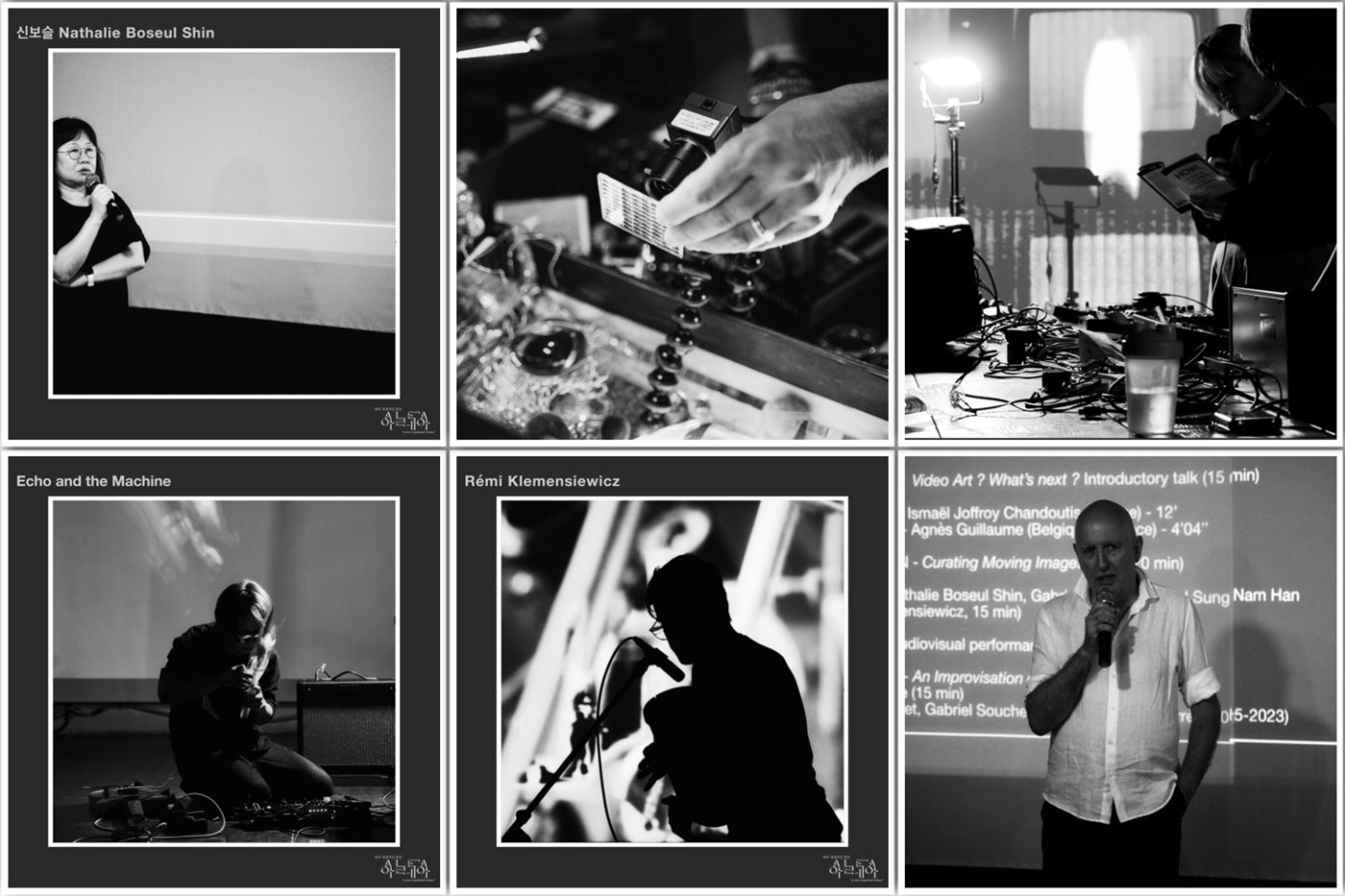
ALEA
PF : What are the objectives of the Unit Academia series?
R : The objectives are multiple. First of all, it is about reflecting the dynamism of the artistic scene in South Korea, and the interest that Korean art arouses abroad, Seoul being today the artistic hub of Asia, and from my point of view, of the world. There is also prospecting and therefore discoveries.
Unit Academia is a place where one can see and debate new trends, and also discover new artists, as Unit Academia is very open to new talents, in all genres and media, for a very diverse and curious audience.
Not long ago, I organized the Denoize festival (which is a visibility platform for young experimenters) with Karl Yoon, and this experience made us discover many new talents, no less than 38 participants answered the call. We intend to go in this pioneering direction with Unit Academia, but with a broader spectrum, the idea being primarily to create chance encounters, fruitful emulsions.
In a way, it is a more social initiative that will work to give the opportunity to see and hear creations that are often inaccessible to non-academics, or remain confined in a form of elitism that often intimidates the majority of the public. Unit Academia is truly open to everyone, without bling or snobbery.
Unit Academia is the satellite – with its autonomy as well – of Alea, a talent scout on a monthly basis that will complement the annual festival that is Alea.
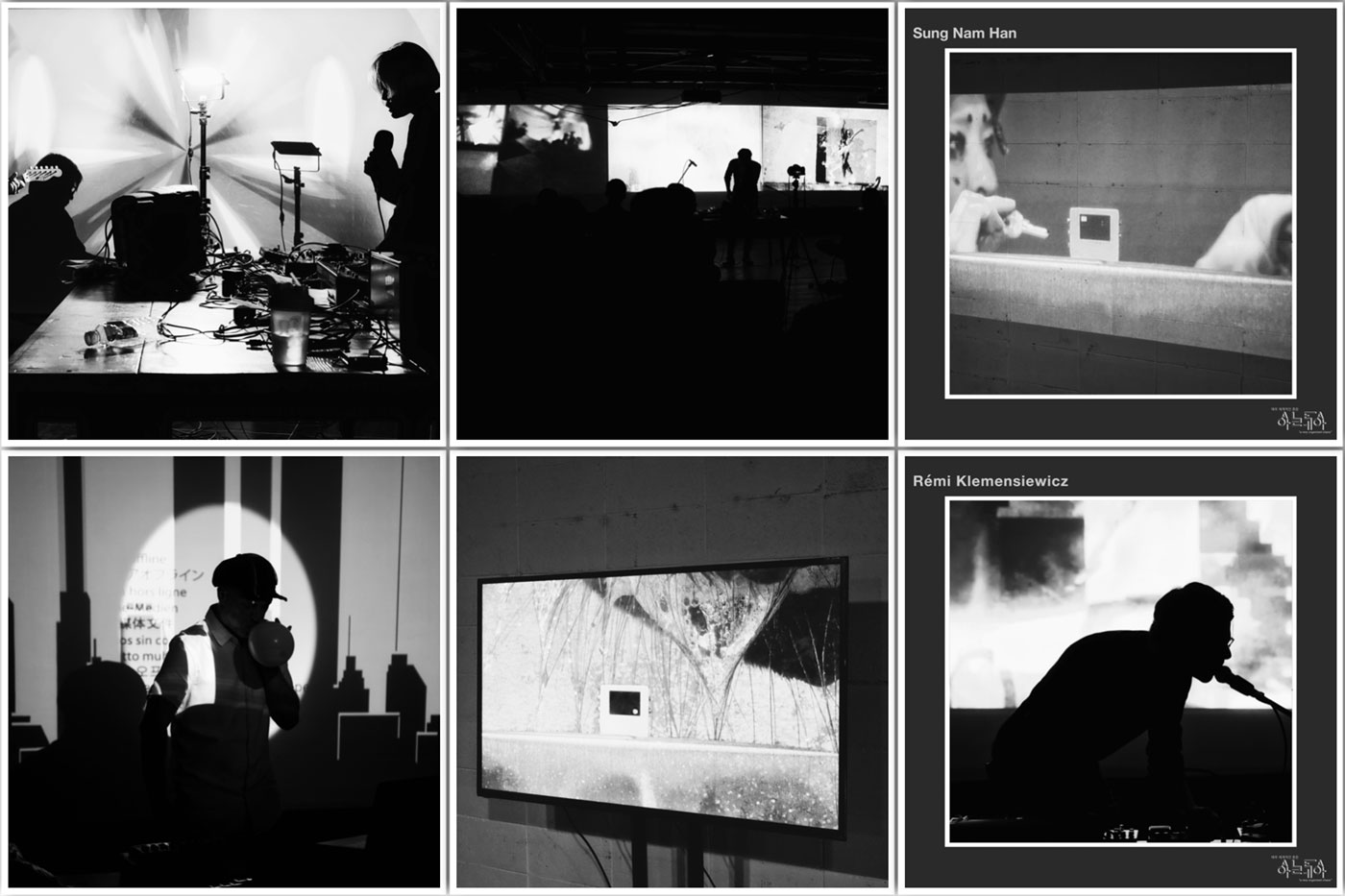
PF : How would you describe the experimental scene (sound, visual, inter or multimedia) in Seoul and more broadly in South Korea today? What are its peculiarities? What are the venues that support it and give it a certain visibility?
R : In fact, I have been strongly interested in the Korean experimental scene since 2002. I even organized an event at Recyclart (Brussels) around 2003 or 2004 with many Korean artists. Apparently, I was the first in Europe to have presented artists from ““Balloon and Needle”, the first Korean experimental music label.
This scene is a reflection of Korea; the music scene was once repressed and even forbidden with the wars and the Japanese occupation (between 1910 and 1945), just like the economy, which suddenly boomed with the invasion of K-pop (whose first generation dates back to the early 90s) is a powerful instrument.
It should not be forgotten that South Korea is the size of Switzerland, with a population almost three times smaller than Japan, 30 times smaller than China’s… And yet, it is incredibly strong and dynamic, like its people.
South Korea is the most mountainous country in the world. 70% of its territory is composed of mountains that cross the country in two major chains. And often, I tell myself that the temperament of the inhabitants and the history of this fascinating country is like this: either high or low, but never flat. Koreans are hungry for art and experimentation, and it’s beautiful to see, especially as a creator and organizer. The audience is there.
I was struck by a comment from a curator and agent for contemporary non-musical artists who did not know this music scene, and who asked me: “why do all these people, so numerous and young, look so fascinated by this weird and “boring” music?”. Something is happening here, perhaps like what we experienced before in Belgium or Western Europe in the early 80s. Of course, there are very local specificities but, originally, the codes come from us in the West, and also from Japan. We had noise with Merzbow, etc… or more European stylistic research. Now they have freed themselves from this, or rather they have used it as a springboard for other explorations elsewhere.
Today, a multitude of young artists use sound art as a brush, to paint very personal portraits. There is also sometimes here a form of irony, a controlled shift, which I rarely find elsewhere (except among the Belgians, precisely), and which makes the works and performances even stronger and, I would say, “intelligent”.
What I particularly like is this subtle sophistication that characterizes the Koreans and that I no longer find elsewhere… everything becomes so conventional… This appetite for mystery and research is starting to be known elsewhere but in my opinion, not yet enough. In terms of cultural venue, I think of this legendary place, very small, very salon-like called “Dotolim”.
This was the very first place where you could come and see artists like Otomo Yoshihide or other important sound experimenters, and this since the early 2000s. Next to Dotolim, in the trendy and picturesque neighborhood of Sangsu-dong to the east of this metropolis of 22 million inhabitants, is Thila, a new cultural space for ambitious sound and digital arts, which is becoming very important. Musician Gazaebal and manager Nine behind this project, will host the next edition of the Alea festival and they also organize the WeSA festival dedicated to sound (its theme is “sound is the new music”) and multimedia arts, whose artistic curator for the next edition in January 2025 will be Gabriel Soucheyre, the director of the hybrid arts Videoformes festival in Clermont-Ferrand (Fr) with whom I also collaborate.
It should also be noted that contemporary art museums in South Korea are very open to experimental music; this scene is very much alive there too. Perhaps the imprint of the father of video art Nam Jun Paik has something to do with it… Also, the line between the visual and the audio and pure physical performance is increasingly blurred… An artist as important as Geumhyung Jeong has just performed a sound performance at Dotolim, and I believe it will be a landmark event. The bridges are there. Lately, the label Helicopter Records led by Park Daham, an experimental musician (with whom I have already shared the bill at Platform L Museum), is very active.
I closely follow artists like Joyul supported by Helicopter Records or Heejin Jang who released an album – “Me and the Glassbirds” – considered one of the very best experimental albums of 2023, internationally. I discovered these two remarkable sound creators by organizing, with my friends, the Denoize festival.
It should also be remembered that there was an interesting psychedelic scene, from the late 60s. I was very surprised by the richness of this forgotten scene, rediscovered recently, precisely by the new Korean generations.
The Republic of Korea is recent (1948) but it is also a very ancient culture. The experimental scene here reflects this double and cyclical aspect well. I like to attend local shamanic ceremonies (a strong experience), and I feel like I am plunged both into the origins of humanity and into the future. I sometimes feel this ceremonial aspect also in certain particularly intense experimental concerts. Buddhist thought takes on its full meaning here: nothing is old, therefore nothing is new.
Philippe Franck
Transcultures – Hautrage Convent 2023
Infos
- 25.05.2024
- East Atelier Gallery
- 264 Wonnam-dong, Jongno-Gu, Seoul, Republic of Korea
- Free entrance
Production
- Zero Division, Unit Academia, European Pepinieres of Creation
- In partnership with East Atelier Gallery

